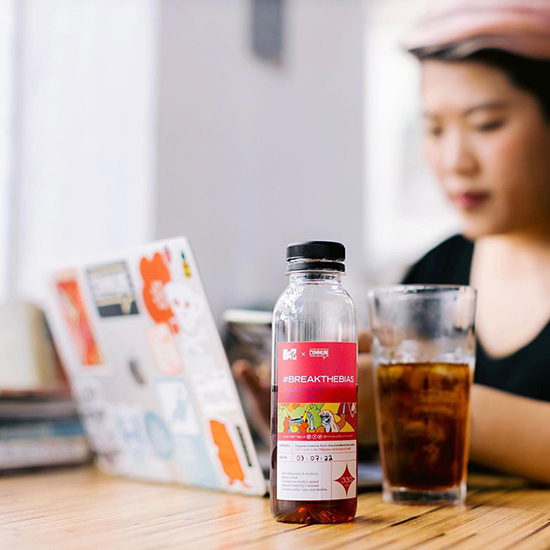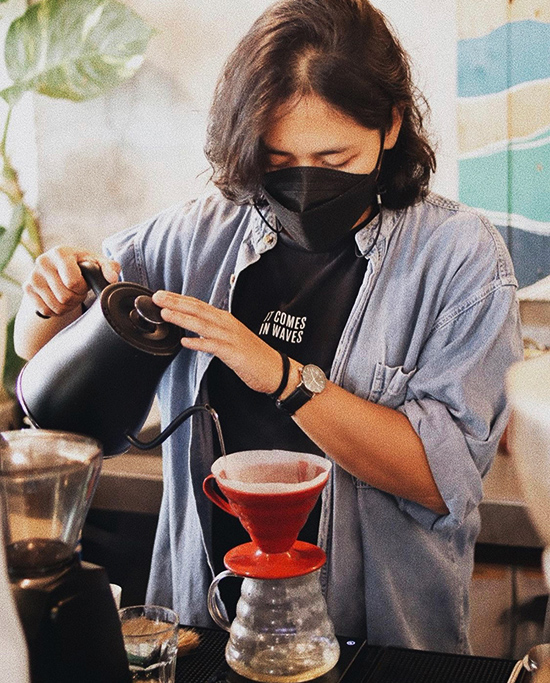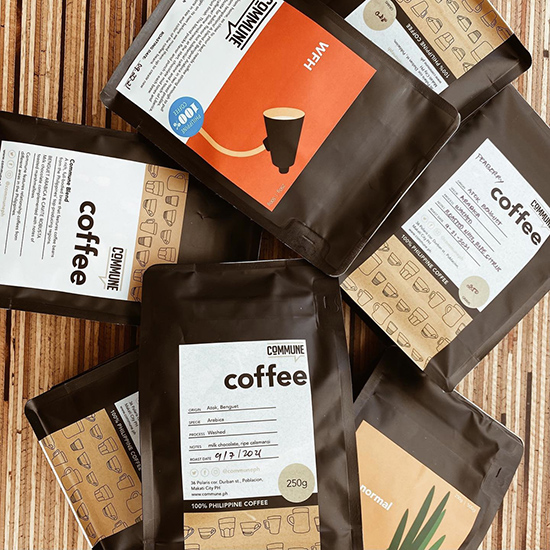The women behind your cup of coffee
Did you know that 70 percent of the labor in coffee production is carried out by women?
I didn’t. Not until I read up on some studies that explored gender equality in the coffee industry. I was under the impression that the coffee scene was male-dominated. After all, when we hear “barista,” “coffee roaster” or “coffee farmer,” it’s usually assumed to be jobs for men.
But these women behind our local coffee scene are making strides to change that.
If you’ve been around Makati, Rosario Juan’s café, Commune, is hard to miss. It’s nestled among the hip restaurants and bars in Poblacion — a two-story corner cafe that is known for many things, with the most impressive being that they only serve Philippine coffee.

Up north, just a few hours from Metro Manila, Alyssa Africa can be found brewing behind the bar of her cafe, Sspace. It’s become a favorite of locals, bikers, and of course, tourists who are looking for a good cup to complement the Tagaytay experience.
And then we also have Irene Abellana of 32 Umber Café in Cebu. Five years in the business and they’ve made a name with their coffee, cakes and cookie pairings — but it’s really their brews and sense of community that make them a favorite among the locals.
Young STAR spoke with these passionate individuals who have taken a great leap of faith — opening up their own coffee shops and going against the giants, all the while advocating for our local coffee.
YOUNG STAR: How did your coffee shop come to be?
ALYSSA AFRICA: The shop started out as a takeaway coffee window where we did slow brews — we were mainly using a v60, AeroPress and Moka pot then.

I started with slow brewing because, in the middle of a busy road where Sspace is located, I wanted people to take their time, at least while the coffee is being brewed. I’ve always believed coffee sparks a conversation one way or another. There’s always something new to discover, whether or not the person on the other side of the window or bar is a coffee enthusiast or just stumbled upon this humble coffee nook of ours. We just expanded to a slightly bigger space with more seating capacity. The structure is simple, cozy and loose. When people come here, I want them to be able to move freely and feel comfortable.
IRENE ABELLANA: Our shop started when my kabarkada and I moved back from Manila. She was fresh off culinary and me from a corporate stint. We were looking for an opportunity to start something that married her love for baking and my love for places where friends gather. That was also a stage in our lives where we were traveling often and saw how different the cafes were outside Asia. I was particularly moved by 49th Parallel in Vancouver and was so inspired by their overall ambience and coffee. Trixie was also experimenting on her baking craft and drew a lot of inspiration from Milkbar and Christina Tosi.
We were so unsure of Cebu’s reception and, at the same time, we opened at a very odd spot so it would really be a gamble. I also know how trying it is to open a small business, but hey, here we are six years later. So much has changed, but the learning still continues.
What’s it like being a woman in coffee, in this day and age?
ALYSSA: It has felt empowering for me to be in an industry that’s mostly influenced if not dominated by men — at least in the forefront — because we know how women contribute significantly to the global coffee industry. And if anything, this journey hasn’t been anything but grounding and exhilarating because I get to meet a lot of new people, from avid coffee home brewers to people who are just discovering about the third wave movement in coffee. Being here has taught me that there’s always something new to learn.
How do you deal with the biases, if any?
ROSARIO JUAN: By showing them that we can be good or better. More in action than in words!
IRENE: Honestly, I’d just choose to focus on something else and not dwell on their biases. It’s a bias that’s very much part of our patriarchal society and at the same time, you can really only change their minds if they see actual, concrete results. These people aren’t worth wasting our energy on. (Laughs) Just look at the glass as half full and let it fuel you to make you work harder and smarter.
ALYSSA: Luckily, I haven’t encountered these types of people or maybe I try not to look at things like if someone is behaving a certain way toward me because I’m a woman. Although I am aware that this reality exists in many cases, I try in ways I can to uplift fellow women by supporting what they do, listening, and having conversations that matter.
Was there any particular encounter that stood out to you since putting up your cafe?
ALYSSA: Every encounter where I get to have a conversation with somebody about what I do and why I do it makes me really excited and makes me want to do more of what I’m doing. I love how every different encounter with someone while I make their coffee leaves both ends with something to learn and discover, not just in terms of coffee but a lot of things in general. It’s like every single day, I’m up for a surprise!
IRENE: I don’t think I’ve encountered anything specific enough to really categorize it as a gender issue. One thing I’ve noticed is men are very good in terms of being very technical and descriptive about a cup of filter brew. They can lay all the adjectives out there to perfectly describe that cup of coffee. Though I am also quite picky in terms of my coffee, I just rely on my intuition in terms of what’s a good filter brew for me. I’m okay with citrus, but I can’t go all the way to telling you it’s “lemon zesty with a hint of Earl Grey and a sweet tangy body as an aftertaste.” Still working on that. (Laughs)

Going further back in the coffee chain, how do you think the rise of third-wave coffee shops has changed the plight of our coffee farmers, especially women?
ROSARIO: The main benefit of these new businesses coming up is the heightened interest and awareness of Philippine coffee. There’s great awareness now about origins, and also the willingness to pay for quality coffee. This is brought about also by farmer education and consumer education.
What’s your big dream for the local coffee industry?
ROSARIO: My big dream is that we really get to increase our production, cater more to the local market, and for Philippine coffee to be renowned all over the world.
ALYSSA: For it to thrive in a way that would mean better coffee is produced and sourced ethically — that farmers get to focus on what they do and are inspired to improve their products because they see the value in what they can offer to people. As well as for people to understand that coffee isn’t merely a commodity, that there’s so much more to it than being the bitter bean.
In my ideal world, every single person understands and respects the process of how their cup of coffee was made.
IRENE: For locals to widen their knowledge when it comes to coffee. If we can all appreciate a good bottle of red wine and all its notes, we should also be able to appreciate how diverse coffee can actually be. It should no longer be a bitter and acidic brew.

Any advice for aspiring women baristas or entrepreneurs?
ROSARIO: Go and do it! You will never know until you try. Reach out to communities!
ALYSSA: Keep doing what you do and believe that you’re not any less capable because you’re a woman. If anything, I believe we’re even more capable than we can imagine. Approach a lot of things with curiosity, and a different perspective.
IRENE: In this very patriarchal society, don’t expect this outlook to change within this decade. For baristas, focus on your craft and nothing else. We’re lucky that you will be judged at the end of the day for that cup you make and not because of your gender. For entrepreneurs, inspire yourself. This is a very difficult thing to do if you’re doing things on your own, but it feeds growth. Whether it be doing menial tasks or planning your five-year agenda, inspiring yourself will inspire others and will foster an even bigger community for women inspiring women.
* * *
As a woman in coffee myself, this interview with Ros, Ally, and Irene affirmed me and what I do. It can be tough and frustrating for sure, but knowing that these ladies are making strides and a positive impact in the supply chain will keep me going, and for sure will inspire other aspiring women baristas or entrepreneurs, too!
Give these woman-led cafes a visit! Here are the links to their social media profiles: Commune , Sspace Coffee Bar and 32 Umber Cafe & Co.


